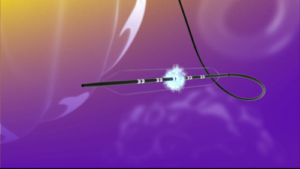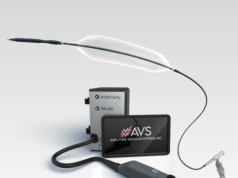
FastWave Medical has announced the 30-day results of its first-in-human (FIH) study using the company’s differentiated peripheral intravascular lithotripsy (IVL) technology.
This was a prospective, single-arm study to assess the safety and feasibility of the FastWave IVL system in patients with peripheral arterial disease affecting the superficial femoral artery (SFA) and popliteal artery with moderate to severe calcium. Principal investigators Miguel Montero-Baker (HOPE Vascular & Podiatry Clinic, Houston, USA), and Venkatesh Ramaiah (HonorHealth Vascular Group and Pulse Cardiovascular Institute, Scottsdale, USA), successfully conducted the procedures in collaboration with the hosting investigator, Antonio Muñoa (San Lucas Hospital, Chiapas, Mexico).
Eight patients with moderate to severe calcified occlusions in the superficial femoral artery (SFA) and popliteal arteries were successfully treated, providing encouraging evidence supporting the early safety and feasibility of the FastWave IVL system, the recent press release states.
Of the company’s key procedural findings, they reported 100% procedural success, no peri-procedural adverse events, and 5.9% mean residual diameter stenosis post-therapy. Reporting their 30-day results, FastWave also shared that no major adverse events were observed, they identified 100% patency, <2.4 peak systolic velocity ratio (PSVR), no revascularisations, walking impairment questionnaire (WIQ) scores showed improved walking distance and speed, and stair-climbing ability, and finally, ankle-brachial index (ABI) improved from baseline 0.56 to 0.89 at 30 days noting enhanced blood flow.
Montero-Baker approved these results, stating: “The overall improvement in the patients treated in the FastWave FIH study is really encouraging and provides compelling evidence supporting the feasibility and safety of the FastWave IVL system for further evaluation in a larger patient population in the USA.”
Ramaiah added: “I am impressed by the performance of the FastWave peripheral IVL catheter—it’s both highly deliverable and easy to use. Achieving a 94% mean residual diameter stenosis reduction at the end of the procedure is equally impressive and the 30-day follow-up results reinforce the initial procedure’s success.”
Scott Nelson, co-founder and CEO of FastWave Medical, shared his excitement: “The procedural data from the initial intervention and the 30-day results reinforce our confidence in the FastWave IVL system’s potential to pave the way for a peripheral pivotal trial in the USA. On behalf of the rest of our team, I’d like to express our sincere gratitude to the principal investigators for their exceptional clinical work and collaboration with the FastWave team in sharing these 30-day data.”










